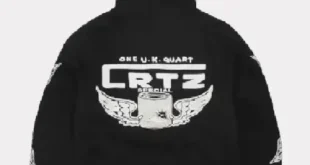Introduction
Debt can be incredibly overwhelming, especially when you’re juggling multiple creditors, due dates, and high-interest rates. It can feel like you’re running on a treadmill, never getting closer to financial freedom. If you’re stuck in this loop, you’ve probably heard about two potential solutions: debt consolidation and debt settlement. Both aim to reduce the burden of debt, but they work in very different ways.
Understanding the difference between these two options is crucial to making the best decision for your financial future. Debt consolidation is often seen as a way to simplify and lower monthly payments, while debt settlement focuses on negotiating with creditors to reduce the total amount you owe. But which one is right for you? It depends on your unique situation.
At Mountains Debt Relief, we specialize in both debt consolidation and settlement. Our goal is to guide you through these options so you can make an informed decision and find the financial relief you deserve. Let’s dive deeper into how each method works, the pros and cons of each, and how you can determine which one fits your needs.
Section 1: What is Debt Consolidation?
Debt consolidation is a strategy that involves combining all of your debts into a single loan, ideally with a lower interest rate. Instead of managing multiple payments to various creditors, you pay one monthly amount, making it easier to manage and potentially less expensive.
Here’s how it works:
- You take out a loan large enough to pay off all your current debts. This loan could be a personal loan, a home equity loan, or a balance transfer credit card.
- Once the new loan is secured, you use it to pay off all your existing debts. Now, instead of multiple creditors, you have one lender to deal with.
- Your new loan will typically have a lower interest rate, which can save you money over time and make your payments more affordable.
Pros of Debt Consolidation:
- Simplified payments: Instead of juggling multiple due dates and creditors, you only have to manage one payment each month.
- Lower interest rates: Depending on your credit score, you may qualify for a lower interest rate, saving you money in the long run.
- Boost to credit score: Paying off your existing debts can improve your credit score, provided you make timely payments on your consolidation loan.
Cons of Debt Consolidation:
- Requires good credit: To get a low-interest loan, you’ll need a decent credit score. Without it, you might not see much benefit from consolidating.
- Could take longer to pay off: While your monthly payments may be lower, extending the term of the loan means you could be in debt for a longer period.
- Risk of not addressing root issues: Consolidation can provide temporary relief, but if you haven’t addressed the underlying causes of your debt, you could end up in a similar situation later on.
Section 2: What is Debt Settlement?
Debt settlement is a more aggressive approach to debt relief. Instead of paying the full amount you owe, debt settlement involves negotiating with your creditors to accept a lump sum that is less than your original debt.
Here’s how it works:
- You or a debt relief company, like Mountains Debt Relief, will negotiate with your creditors, explaining that you are unable to pay the full amount of your debts.
- If creditors agree, you’ll pay a reduced amount, typically in a lump sum or over a series of payments. This amount is often much less than what you originally owed.
- Once the settlement is paid, your debt is considered resolved, and creditors won’t pursue you for the remainder.
Pros of Debt Settlement:
- Reduction in total debt: You could end up paying significantly less than what you owe, saving you thousands of dollars.
- Faster relief: Depending on the size of your debt and your ability to make payments, you can resolve your debt faster than you would through other methods.
Cons of Debt Settlement:
- Negative impact on credit: Since debt settlement means you’re paying less than what you owe, it can hurt your credit score in the short term.
- Not all creditors will agree: Some creditors may refuse to settle, which means this option isn’t guaranteed to work across all your debts.
- Potential for fees: Debt settlement companies may charge fees for negotiating on your behalf, so it’s essential to understand all costs involved.
Section 3: Debt Consolidation vs. Debt Settlement: Key Differences
Choosing between debt consolidation and debt settlement can be tricky. To make the right decision, it’s essential to understand the core differences between these two strategies.
- Approach:
- Debt Consolidation: You’re combining debts into one, usually paying the full amount owed but at a lower interest rate.
- Debt Settlement: You’re negotiating to pay less than what you owe, potentially saving money but impacting your credit.
- Impact on Credit:
- Debt Consolidation: Consolidating debt can have a positive effect on your credit score since you’re paying off old debts.
- Debt Settlement: Debt settlement may initially hurt your credit because you’re not paying the full amount, but the long-term relief can outweigh the short-term hit.
- Timeframe:
- Debt Consolidation: Depending on the loan term, you could be paying off your consolidated debt over a longer period, often up to 5-7 years.
- Debt Settlement: Settlement usually resolves debts faster, but it depends on your ability to make lump-sum payments.
- Costs:
- Debt Consolidation: You’ll pay the full amount of your debt, but possibly at a lower interest rate, which could reduce your overall costs.
- Debt Settlement: You’ll pay less than what you owe, which can save you money upfront, but you might incur fees and penalties.
Section 4: Which Option is Right for You?
Choosing between debt consolidation and settlement depends on your financial goals, your current situation, and your ability to manage debt moving forward.
Consider Debt Consolidation if:
- You have a decent credit score and can qualify for a low-interest loan.
- You’re looking for a simplified way to manage your debt without drastically reducing your credit score.
- You can commit to regular payments over a more extended period.
Consider Debt Settlement if:
- You’re unable to make the full payments on your debts.
- You’re primarily concerned with getting out of debt as quickly as possible, even if it means a temporary credit score hit.
- You have a lump sum or can save up a lump sum to offer creditors as part of the settlement agreement.
At Mountains Debt Relief, we work closely with you to evaluate your financial situation and recommend the best path forward. Whether it’s consolidation or settlement, we’re here to guide you toward a future free from overwhelming debt.
Section 5: How Mountains Debt Relief Can Help
No matter which option you choose, Mountains Debt Relief is here to support you every step of the way. Our team of experts specializes in both debt consolidation and settlement, providing personalized plans that fit your financial situation. We’ll help you weigh the pros and cons, negotiate with your creditors, and ultimately, find a solution that helps you regain control of your finances.
- Personalized debt relief plans: We tailor our strategies to fit your specific needs and financial goals.
- Negotiation with creditors: Our team negotiates directly with your creditors, saving you the hassle and stress.
- Ongoing support: Debt relief isn’t a one-size-fits-all solution. We provide ongoing guidance and support to ensure you stay on track to financial freedom.
Debt can feel like an insurmountable mountain, but with the right help, you can reach the summit. Let Mountains Debt Relief be your partner in navigating this journey.
Conclusion
Choosing between debt consolidation and settlement is a big decision, and it’s one you shouldn’t have to make alone. Both options offer different paths to financial freedom, and the best choice depends on your specific financial circumstances.
Debt consolidation is ideal for those looking for a simplified, long-term repayment plan with lower interest rates. On the other hand, debt settlement is more suited to individuals seeking immediate relief, willing to negotiate and pay less than what they owe.
At Mountains Debt Relief, we offer the guidance and expertise you need to decide which option is right for you. Don’t let debt control your life any longer—take action today. Contact us for a free consultation, and let’s find the best way to tackle your debt together.
 Diverse Perspectives: Insights & Stories Exploring Ideas, Sharing Knowledge
Diverse Perspectives: Insights & Stories Exploring Ideas, Sharing Knowledge





